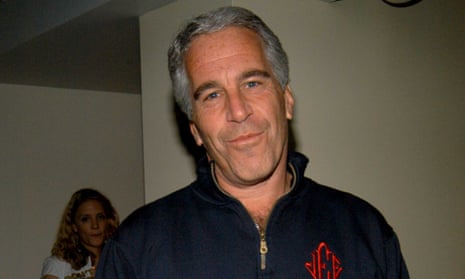A Voice Long Suppressed
For years, Virginia Giuffre has been one of the most recognizable — and enigmatic — names connected to the Jeffrey Epstein scandal. Her voice has appeared in interviews, depositions, and court documents, but always in fragments, always surrounded by layers of legal red tape and media speculation.
Now, for the first time, Giuffre has released a full-length memoir, a personal account she describes as “the story they tried to bury.”
The book, released this week, promises revelations that extend beyond the already disturbing narrative of Epstein’s trafficking network. It suggests a system of power, privilege, and cover-ups far larger than one man.
A Memoir Like No Other
Unlike previous testimony, the memoir is not filtered through lawyers or cross-examinations. It is Giuffre’s voice alone: raw, emotional, and often excruciatingly detailed.

From the opening pages, she spares no one. Billionaires, celebrities, politicians, even members of royalty — all are portrayed in a world where wealth insulated the powerful and silenced the vulnerable.
“Every time I tried to speak,” she writes, “someone told me to be quiet. But silence only feeds monsters. And I was done feeding them.”
Names, Power, and Fear
While much of Epstein’s network has been exposed in news reports and documentaries, Giuffre’s memoir hints at additional powerful names that, until now, remained in the shadows. She does not always provide explicit details — legal restrictions still loom large — but the insinuations are enough to rattle entire institutions.
Political operatives, Hollywood producers, international financiers — figures who once seemed untouchable now find themselves back in the public’s gaze.
“The scariest part,” one early reader commented, “is not the names she mentions. It’s the ones she refuses to say out loud. You realize just how much power is still out there, unchallenged.”
The Mechanics of Control
Beyond exposing individuals, Giuffre dedicates chapters to describing the machinery of silence that surrounded Epstein.
She details how victims were intimidated, how lawyers wielded legal loopholes, and how media outlets hesitated to pursue stories for fear of lawsuits or lost access.
Perhaps most chilling are her accounts of how young women were conditioned not only through fear, but also through subtle manipulation — promises of modeling contracts, scholarships, or introductions to glamorous circles.
“By the time you realized it was a trap,” Giuffre writes, “it was too late. And they made sure you believed no one would believe you.”
Hollywood, Politics, and Royalty
The memoir spares no category of influence. Giuffre recalls evenings where celebrities brushed shoulders with politicians, where billionaires mingled with princes.
The atmosphere was one of untouchability. “They acted like gods in their own Olympus,” she notes, “and the rest of us were disposable.”
While many names in her book have been widely speculated upon, the juxtaposition of glamour and horror adds new gravity. What once felt like gossip is reframed as evidence of systemic rot.
Public Reaction

Unsurprisingly, the memoir’s release has caused a media firestorm.
-
Survivors’ advocacy groups praised Giuffre’s bravery, calling the book “a crucial step toward truth-telling.”
-
Critics, however, accuse her of exploiting tragedy for profit.
-
Legal experts warn that lawsuits may follow, depending on the claims made within.
Social media is ablaze, with hashtags like #GiuffreMemoir and #EpsteinSecrets trending worldwide. Many readers insist the book will finally force institutions to confront what they ignored for decades.
A Darker Truth Than Imagined
Perhaps the most haunting revelation in the memoir is not about names or dates, but about the scale of Epstein’s operation.
Giuffre suggests that the trafficking was not an anomaly, but part of a broader ecosystem where wealth and power thrive on exploitation.
“This wasn’t just one man’s sickness,” she writes. “It was a system. And systems don’t die when one man goes to prison.”
Her words point to a conclusion that is both unsettling and urgent: the story of Jeffrey Epstein is far from over.
The Cost of Speaking
Giuffre acknowledges the personal cost of her decision to write the book. She describes threats, sleepless nights, and the toll it has taken on her family. Yet she frames the memoir as an act of survival — not just for herself, but for other survivors.
“Every time I speak, another woman realizes she is not alone,” she writes. “And that is worth more than my fear.”
What Happens Next?
The memoir’s impact is already rippling across courts and legislatures. Lawmakers are calling for new inquiries. Journalists are digging again into old files. Advocacy groups are demanding reforms in how trafficking cases are prosecuted.
But the bigger question lingers: how much of the truth is the world actually ready to face?
As Giuffre herself warns in the book’s final chapter: “We keep asking what happened. But the real question is: how deep are we willing to dig? Because the answers are darker than anyone wants to admit.”
Conclusion
Virginia Giuffre’s memoir is not just a personal story. It is a cultural reckoning, a mirror held up to a world that enabled Jeffrey Epstein for far too long.
Whether the book leads to justice, accountability, or just more sensational headlines remains to be seen. But one thing is certain: Giuffre has shattered the silence.
And with her words, she has forced the world to look again — not just at one man, but at the structures of power that allowed monsters to thrive in plain sight.